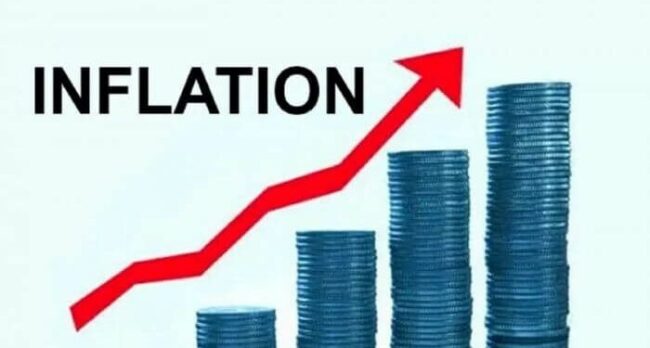Ahead of the official release of the November 2024 inflation data by the National Bureau of Statistics (NBS), CAPE Economic Research & Consulting has projected 34.03 percent as the headline inflation rate for the month.
The NBS had put the October 2024 inflation rate at 33.88 percent, up from 32.7 percent recorded in September 2024, as the nation continues to grapple with rising costs of goods and services ahead of the festive season.
CAPE, in its latest publication, attributed its forecast for the November inflation rate to the persistent increase in food prices, fluctuations in the exchange rate, housing, and utility costs, contributing 4.70 percent, 0.38 percent, and 0.31 percent, respectively.
CAPE stated, “Inflation is expected to heighten in November 2024. Our forecast showed that inflationary pressure would heighten as headline, food, and core inflation are expected to rise to 34.03, 40.13, and 28.12 percent, respectively.
“The principal drivers shaping the forecast for headline inflation persist in food prices, the exchange rate, housing, and utility costs, contributing 4.70 percent, 0.38 percent, and 0.31 percent, respectively.
“Our analysis underscores the significant influence of food prices, exchange rate fluctuations, and housing and utility costs on headline inflation.”.
It pointed out that the recent adjustments in energy prices and exchange rates following deregulation continue to exert upward pressure on inflation, with these effects likely to persist in the medium term.
According to CAPE, core inflation remains largely driven by increases in transportation, education, clothing, housing, utilities, and healthcare costs.
“Inflationary risks are further compounded by the expanding fiscal deficit, the removal of fuel subsidies, and sustained exchange rate pressures, all of which contribute to significant pass-through effects on consumer prices,” CAPE further stated.
As reported by the NBS, the rise in headline inflation rate in October 2024 to 33.88 per cent reflects persistent price pressures driven by factors such as high energy prices, currency depreciation, and supply chain disruptions, exacerbated by floods, infrastructural deficits, and insecurity, among others.
With inflation remaining elevated, Nigerians face mounting challenges from the escalating cost of living, which continues to affect both household expenditure and business operations.
In October 2024, the headline inflation rate increased by 1.18 percentage points compared to the rate recorded in September 2024.
READ MORE FROM: NIGERIAN TRIBUNE
